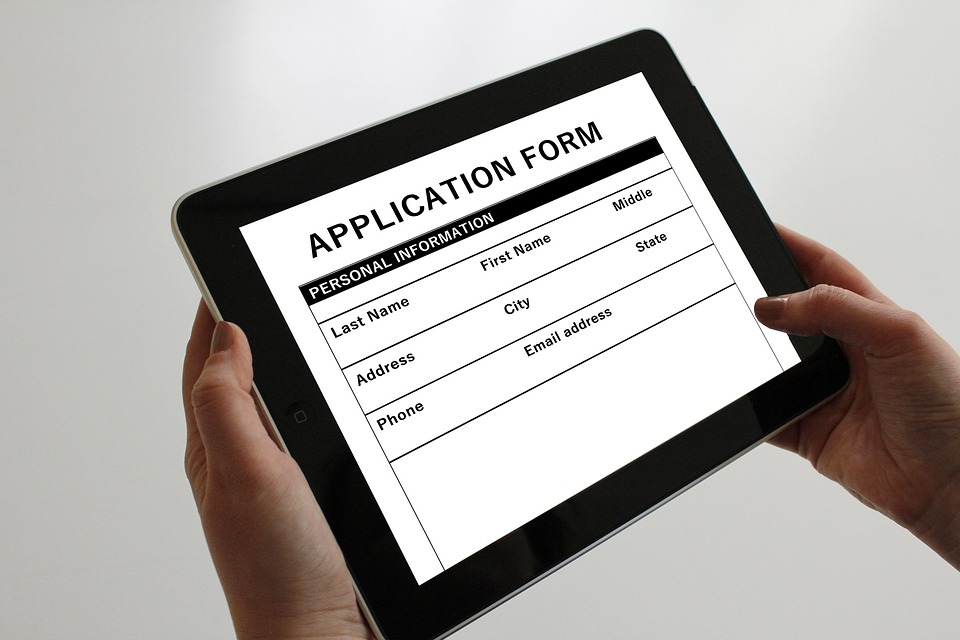UCAS application is an indispensable step if you want to apply to the universities and colleges in the UK. Therefore, it is undoubtedly significant for you to get familiar with the UCAS application process and the relevant knowledge. Immerse yourself into this comprehensive guide to learn everything about UCAS application 2025, like UCAS application deadline 2025, UCAS track, and UCAS application fee.
Overview of UCAS Application
What is UCAS?
You may wonder, “What is a UCAS application?” In fact, UCAS is the abbreviation of “Universities and Colleges Admissions Service”. It is an organization in charge of admissions for higher education institutions in the UK, providing unified admissions services to all universities in the UK. Unlike other countries, the UCAS application is the necessary channel for students to apply for undergraduate, associate’s, preparatory, and even some postgraduate degree programs in British universities. Students can apply to 5 universities in the UCAS system. After submitting the application, UCAS will transfer the complete application materials to each university for review, and the university will decide whether to admit. Afterwards, the results of the application will be reflected in the UCAS system. What’s more, checking the application progress, accepting offers, or UCAS clearing, are all operated on the UCAS system!
Meaning of UCAS
- UCAS provides an online platform for searching and browsing higher education courses in the UK. You are free to look up the courses that you are interested in through the UCAS system and learn about the relevant information, such as course requirements, tuition fees, and admission requirements.
- UCAS organizes and manages the unified admissions for universities. Most UK universities use the UCAS system for admissions, accepting and managing applications through UCAS, and issuing the results after the UCAS application deadline. All national and international students apply for university courses through UCAS.
- UCAS provides information and resources. The UCAS system provides extensive information and resources about British higher education, the UCAS application process, university evaluations, living costs, and other topics to help applicants better understand and prepare for university life.
UCAS Application in 2025
UCAS Application Requirements in 2025
There are some entry requirements for UCAS applications in 2025 based on the subject, course, and administration. So through this, the universities are able to screen out the students who are suitable for the selected course with enough necessary knowledge and skills.
- Most universities or colleges will take your A-level grades and your qualifications, like Advanced Highers, into account. All of them will be converted into Tariff points. You may wonder, “How many UCAS points is an A-level A?” You will get specific answers from the chart below.
| A-level and Advanced VCE grade | Tariff points |
|---|---|
| A* | 56 |
| A | 48 |
| B | 40 |
| C | 32 |
| D | 24 |
| E | 16 |
- Universities will consider your experience, interests, and skills to evaluate whether you are suitable for this course.
- Some universities will give an admissions test for you, so you need to check beforehand.
- There are also some other materials you need to prepare, such as financial, health, Protecting Vulnerable Groups (PVG) checks, or Disclosure and Barring Service (DBS) checks.
Preparation for UCAS Application Materials
Before applying for UCAS, students need to prepare the following documents in advance to ensure a smooth UCAS application process. The documents include a reference letter, university choices, predicted grades, a personal statement, and employment history. The sooner you prepare your documents, the sooner you can submit the UCAS application, and the earlier you will have an opportunity to get admission. By the way, as for the students applying for Health subjects at UCAS, you will get more opportunities to have an interview and strive for offers.
Reference Letter
The UCAS reference letter is a link specially designed by the university to hear the voices of students’ teachers, which is the only link that students cannot control in the UCAS application process. Through the letter, the university could verify whether the student’s academic or extracurricular experience is fictitious and whether the student’s academic ability is worthy of the university’s offer.
Furthermore, the reference is usually one of the student’s teachers, tutors, or the head teacher in high school. He/she needs to master the student’s academic situation. By the way, you should find the teacher in the corresponding subject. For example, if you want to apply for engineering, you can ask the Maths teacher or Physics teacher for a more targeted and detailed reference letter. Teachers can also share the students’ performance in class to demonstrate how suitable the student is for the course.
University Choices
It would be best if you first determined the major you want to study before UCAS applications. UCAS will release course information a few months before the application submission opens. At the same time, students can use the UCAS search tool to search for relevant subjects using keywords. Click on the appropriate university to view the admission requirements, starting time, employment prospects, and other information on the school’s subjects. Here are some tips for the choices of a university:
- Students can choose up to 5 courses per year, except Medicine, Dentistry, Veterinary Medicine, and Veterinary Science, where only 4 courses can be chosen.
- Students cannot apply to the University of Oxford and University of Cambridge at the same time in one application cycle.
- In the UCAS application, the options are not in order, and the UCAS applications to each university or college are independent. It is recommended that you choose all five options in the same discipline because you can only submit 1 document on the UCAS system, which usually focuses on the description of your subject orientation.
Predicted Grades
After the senior high school exam, students are able to apply to the school for predicted scores. Generally, teachers will estimate students’ simulated examination scores through their professional judgment and experience, and the students’ test scores, performances, and homework in the third year of high school.
Personal Statement
A personal statement in UCAS applications is also particularly important, especially in highly competitive subjects or universities. A good personal statement should fully demonstrate the student’s enthusiasm for the subject within 4000 characters, that is, about 500-600 words (no more than 47 lines). In addition, the relevant experience is also necessary to prove that the student has the required potential to study the subject.
What’s most important is that the personal statement must be original without plagiarism. The UCAS system will detect plagiarism on each personal statement. If the similarity rate exceeds 10%, it is considered plagiarism. Although the UCAS system will not process applications involving plagiarism in personal statements, it will notify universities of this information. As we all know, plagiarism is a very serious matter in universities, which can greatly affect a student’s UCAS application, and even result in the student’s UCAS application being disqualified.
Employment History
The employment history is a pivotal point in proving the student’s academic performance and personal subject-related strengths beyond grades. Past work experience, such as summer jobs, internships, or shadowing internships, can give students extra points. Especially for Health Science subjects such as Physical Therapy, the admissions officer may ask questions based on the relevant experience in the essay, which is one of the key points that affect the result. Therefore, you should make good use of the free time during each holiday to try various workshops and internships related to the subjects you want to apply.
Relevant Concepts about UCAS Application
Firm Choice & Insurance Choice
When all the universities a student applied to have given admission notices, UCAS will send an email to remind students that their UCAS application status has been updated. At this time, students need to log in to UCAS Track to make a final decision. UCAS Track will give students a deadline, in May or early June, generally. So what is the final decision? Although students can fill in 5 choices when applying, students can only keep 2 of the offers, the firm choice and the insurance choice, if these 5 universities/courses all give students offers.
- Firm choice is the first choice. If you can meet the admission requirements, you will definitely be admitted. In addition, you must go to this university in principle.
- Insurance choice is the second choice. When you cannot meet the conditions listed in the firm choice offer but can meet them in the insurance choice offer, you will be admitted to the insurance choice.
P.S. If you do not make a decision before the deadline of the UCAS track application, UCAS will automatically reject all university offers for you.
UCAS Extra
As mentioned before, most students will receive admission notices from UCAS Track in mid-May. If you change your mind about your course after that, or none of the 5 universities pick you, you can make an extra choice in the next stage. In 2025, UCAS Extra will be open from 26 February to 4 July. By the way, if there are still no offers after the deadline date for UCAS applications, 4 July, you can apply for the remaining courses through the UCAS clearing in the final stage.
UCAS Clearing
UCAS clearing means that if there are still vacancies in some subjects at universities after the UCAS extra closes in July, students can choose a desired school to apply to during UCAS clearing. However, the situation of each university’s enrollment is different from that in previous years, so it is difficult to predict the number of places provided by each university at this stage. Nevertheless, there are always many top universities that still recruit students during the UCAS clearing period every year, such as the University of Leeds, University of Nottingham, and University of Sheffield. By the way, UCAS clearing is mainly suitable for the 3 following types of students:
- The student’s final grades were higher than expected, so he/she hopes to apply to better and higher-ranked universities through UCAS clearing.
- The student’s examination is not satisfactory without meeting the offer. In this way, for students who fail to meet the requirements of firm choice and insurance choice, UCAS clearing gives the students a second chance.
- For students who have missed the UCAS application dates or have never applied for UCAS, they still have the chance to be admitted during this period.
3 Steps for UCAS Application
- Step 1: Register an account on the UCAS APPLY website.
- Step 2: Turn to UCAS login and fill in the form, including all personal information, mailing address, reference letter, personal statement, and education history.
- Step 3: Turn to the UCAS TRACK website to follow up with the latest information at any time.
UCAS Courses Application
When applying for a UK undergraduate course through UCAS, applicants can choose up to 5 courses, which can be from different universities or different specialisations within the same university. For specialisms such as Medicine, Dentistry, and Veterinary Medicine, you can apply for up to 4 relevant courses, with the 5th choice being a non-medical course. The UCAS system does not prioritise volunteers, and all universities will receive applications at the same time and will not be aware of what other schools you have applied to. When applying for a course, ensure you fill in the exact course code. It is also advisable to apply for a consistent course direction to write a focused personal statement. In addition, arts programmes such as Music and Dance require a separate application through the UCAS Conservatoires system, which has a different process and timings. Being aware of these regulations will help you to plan your application strategy and increase your chances of success.
UCAS Deferred Entry Application and Process
A UCAS Deferred Entry is when you submit your application for university during the current application cycle, but wish to enrol the following year (i.e. a deferred year). This is usually for students who want to take a “Gap Year” before university, such as travelling, doing an internship, volunteering or improving their language skills. There are two ways to apply for deferral:
1. Select Deferred Entry directly before applying
- When you select your course in the UCAS online application system, there will be a “Start date” option next to each course, and you can select “2026” instead of “2025”. You can choose ‘2026’ instead of ‘2025’.
- Once you have submitted your application, the University will review it as if you were deferring your enrolment for one year.
- If the university approves your application, you will receive an offer for the current year, but your admission will be delayed by one year.
2. Apply to the university for a deferral after applying
- If you initially applied for the current year but later decided to defer, you can contact the university directly to apply for a deferral after you have received your offer.
- Whether or not the university accepts a deferral depends entirely on its policy and the current year’s enrolment.
- Usually, you need to contact the school by email, explaining the reason for deferral (it is recommended to write in a sincere and reasonable manner).
Note of caution:
- Not all programmes accept deferred entry, especially medical, architecture and some art programmes, so be sure to check the university’s website or contact the admissions office before applying.
- After deferred entry, you still need to fulfil the admission requirements (e.g. grades, language requirements) within the stipulated time.
- Once a deferral has been approved, it is usually not possible to change it to the current year, so you need to be careful with your decision.
- Some universities may require you to provide a gap year programme to prove that the time will be “meaningfully used”.
How Many Universities Do I Apply to Through UCAS?
In the 2025-2026 UCAS application cycle, students can apply for up to 5 courses, which can be from the same or different universities. Whether or not you can apply to more than one university depends on how you choose these 5 courses.
Up to 5 volunteers (courses): you can choose up to 5 different courses, which can be:
- The same specialism from a different university.
- Different specialisations from the same university;
- a completely different combination of universities and specialisms.
Restrictions on Medical/Dental/Veterinary courses:
If you are applying for Medicine, Dentistry or Veterinary Science/Medicine, you can only apply for a maximum of 4 courses, and your 5th choice must be a non-medical course.
Arts (Music, Drama, etc.):
If you are applying for arts courses such as Music, Dance, etc., usually through the UCAS Conservatoires platform, the rules are slightly different (up to 6 courses).
UCAS Deadline 2025 – 2026
From mid-May 2025, applicants will be able to register for a UCAS Hub account, and in early September 2025, applications will open for submission. If you plan to apply to Oxford or Cambridge for programs like Medicine, Dentistry, or Veterinary Medicine, you must submit your application by 15 October 2025 (18:00 UK time). For most other undergraduate courses, the standard application deadline is 29 January 2026 (18:00 UK time). Offers will then be made, and applicants will have until mid-June 2026 to confirm their final choice (Firm and Insurance). Students who have not been offered a place or who have changed their decision will be able to enter the UCAS Clearing stage from early July 2026. A-Level and other results will be released by mid-August 2026, and the University will confirm the final offer, and the student will be admitted to the University in September 2026. International students are advised to apply early to allow sufficient time for visa and accommodation arrangements.
UCAS Timetable 2025-2026
If you’re considering the whole UCAS application process, it’s important to be aware of the various key time points. Here are the key UCAS dates for 2025-2026:
| Date | Process |
|---|---|
| 29 April 2025 | UCAS search tool opens with 2026 entry courses |
| 13 May 2025 | Undergraduate application system opens; students can register and begin filling out applications |
| 2 September 2025 | Completed applications can be submitted to UCAS; a referee is required before submission |
| 15 October 2025 (18:00 UK time) | Deadline for applications to Oxford, Cambridge, and most courses in medicine, dentistry, and veterinary science |
| 14 January 2026 (18:00 UK time) | The main deadline for most undergraduate courses |
| 26 February 2026 | UCAS Extra opens for applicants who used all five choices and hold no offers |
| 30 June 2026 (18:00 UK time) | Applications received by this date are sent to universities; later applications go directly to Clearing |
| 4 July 2026 | Deadline to apply through UCAS Extra |
| 5 July 2026 | Clearing opens for eligible applicants; course vacancies are shown in the UCAS search tool |
| 19 October 2026 | Final date to add a Clearing choice |
UCAS Track
Students need to pay attention to UCAS Track after submitting UCAS application. You can view the application progress and results on this UCAS system. Generally, there are 3 UCAS application forms:
- Conditional Offer: Students must meet the conditions required by the university to obtain formal admission. The general requirements are English test scores, such as IELTS, and public exam scores (such as HKDSE, A-Level or IB). In addition, admission requirements will vary due tothe subject and the university’s ranking.
- Unconditional Offer: Students obtain unconditional admission from the university. On the UCAS system, if the university is satisfied with the student’s comprehensive ability, it will issue a conditional offer.After the student sends the public examination score sheet and other English test scores to the university, the conditional offer is converted into unconditional offer, the same as the formal admission. By the way, the university will clearly state that if students want to choose other courses, they must first give up the offer and then apply through the UCAS. Once you choose to accept an unconditional offer from a certain university, you are confirmed to be enrolled in that university.
- Unsuccessful Application/Reject: The application is unsuccessful and the student fail to obtain an admission letter from the university, which is the worst UCAS application form.
UCAS Application Fee 2025
You may wonder, “how much is a UCAS application?” We will reveal how much for UCAS application as follows. From 2025, the students who enjoyed free school meals in the home country do not need to pay UCAS application cost. Therefore, it is easier for talented students from diverse cultural background to apply to the universities in the UK. In addition, the other disqualified students only need to pay £28.50 for UCAS application fee.
Key Changes in UCAS Application 2025
Changes to UCAS Reference Letter Requirements:
- The maximum character limit: The maximum character limitis 4000 characters, including spaces, titles and line breaks. It is recommended that the text be within 3,800 characters.
- Extenuating Circumstances: The special circumstances section is used to prove that the student’s performance was affected by some factors. If there are complex or sensitive circumstances, this section can be used to emphasize that there are extenuating circumstances.
- Highlights: The other section should beconcise, highlighting the applicant’s suitability for the program while sharing relevant background information.
UCAS Application Fee increases
The UCAS fees for application will increase slightly in 2025, from £27.50 to £28.50.
Tips for a Successful UCAS Application
Here are some tips for a successful UCAS application that will take the stress out of your application:
1. Start early: Begin your application process early to avoid last-minute nerves and ensure you have ample time to gather all the necessary documents and information.
2. Research carefully: Research courses and universities carefully to find the ones that best match your interests, skills and career goals.
3. Write a strong personal statement: Your personal statement should clearly explain why you want to study your chosen course, your relevant skills, experiences and future ambitions. Be honest and reflective.
4. Get good references: choose referees who know you well academically or professionally and who can provide positive and detailed references.
5. Check entry requirements: make sure you have met or are meeting the academic and other entry requirements for your chosen programme.
6. Keep track of deadlines: mark all UCAS deadlines and university-specific dates on your calendar to ensure you submit your application on time.
7. Proofread carefully: Review your application materials several times or have someone else proofread them to avoid any spelling or grammatical errors.
8. Choose your course realistically: Choose a balanced course that includes some attainment, match and safety.
9. Prepare for an interview or trial: If your course requires an interview, trial, or test, be well-prepared and present yourself confidently.
Conclusion
UCAS application cycle is very long, usually one year, and there are frequent updates on the UCAS application progress. Students need to log in to the UCAS track application system in time to follow up. Although it is not difficult to fill out, each of the materials requires a lot of time to prepare and consider. Finally, the blogger would like to remind you that British universities generally adopt a rolling admissions mechanism, that is, once the enrollment quota is full, the application channel will be closed immediately. Therefore, if you want to study in the UK, you should submit your UCAS application materials as early as possible to seize the opportunity. After applying, start rushing for student accommodation through uhomes.com to find the most suitable lodging without much money!
FAQs about UCAS Application
Do I need to submit IELTS when registering for UCAS?
UCAS application is a long cycle, and you do not need to submit any English scores when applying for UCAS. After receiving the admission offer, you can follow the English requirements on different offers before the date specified on the offer. Generally speaking, the deadline for English requirements is in July or August.
Is UCAS the only way to apply in UK?
UCAS is widely regarded as the primary method for applying to British universities, but there are also several other ways to apply in the UK, such as direct applications to some universities accepting this approach, the application to most postgraduate courses, and the applications to the conservatoires and art schools.
Is UCAS only for students?
UCAS isn’t only for students. The students are undoubtedly the primary users. However, parents, guardians, teachers and career advisers always use the tools and resources from UCAS to help guide their children or students through the complex UCAS application process. In addition, higher education institutions use UCAS to manage and streamline their admissions processes.
What is the acceptance rate for UCAS?
Approximately 72.7% of UK applicants received offers from at least one of their chosen universities in 2023. There were 757,000 UCAS applications for full-time undergraduate courses. However, just over 550,000 applicants were accepted.
What is the deadline for UCAS applications in 2025?
The main deadline for UCAS undergraduate applications for 2025 is 15 October 2025 (18:00 UK time) for students applying to the Universities of Oxford, Cambridge and most medical, dental and veterinary medicine/science courses; while the standard application deadline for most other undergraduate courses is 29 January 2026 (18:00 UK time). It is advisable to prepare your application materials as early as possible to ensure that you submit a complete application by the deadline.
What is the UCAS application?
UCAS is the Universities and Colleges Admissions Service (UCAS), which manages unified applications for undergraduate and some postgraduate programmes in the UK. Through UCAS, students can complete and submit an online application, select up to five courses and schools, submit a personal statement and letters of recommendation, and apply to multiple institutions quickly and easily.The UCAS application is an important pathway to higher education in the UK.
How do I start an application on UCAS?
To start applying on UCAS, you first need to register an account on the UCAS website, fill in basic personal information and create an application profile. Then select the course and school you wish to apply for and fill in the educational background, work experience and personal statement. After completing all the information, submit the application and pay the application fee, and the system will send the application to the selected universities and colleges. The whole process is online and clear, making it easy for students to manage their application progress.
How much does UCAS cost?
The UCAS application fee varies depending on the number of courses chosen: £22 for one application and £26.50 for multiple applications (up to five). Applications are not formally processed until the fee is paid. The fees are relatively reasonable and cover both application processing and information transfer services between universities.
Does UCAS accept international students?
UCAS accepts applications from international students for undergraduate programmes in the UK. No matter what country you are from, you can submit your application through the UCAS system and choose the university and programme of your choice. However, international students need to be aware of the language and visa requirements of each university, and prepare relevant academic evidence and language results.
Do you need GCSE for UCAS?
When applying to UCAS undergraduate programmes, GCSE results are often required as important evidence of academic background, particularly in core subjects such as English and Maths. Whilst the specific requirements for GCSE grades vary between universities and specialisms, good GCSE grades can help improve your chances of being accepted. Some universities may accept equivalents or other international qualifications, but GCSEs remain a common standard in the UK application system.












